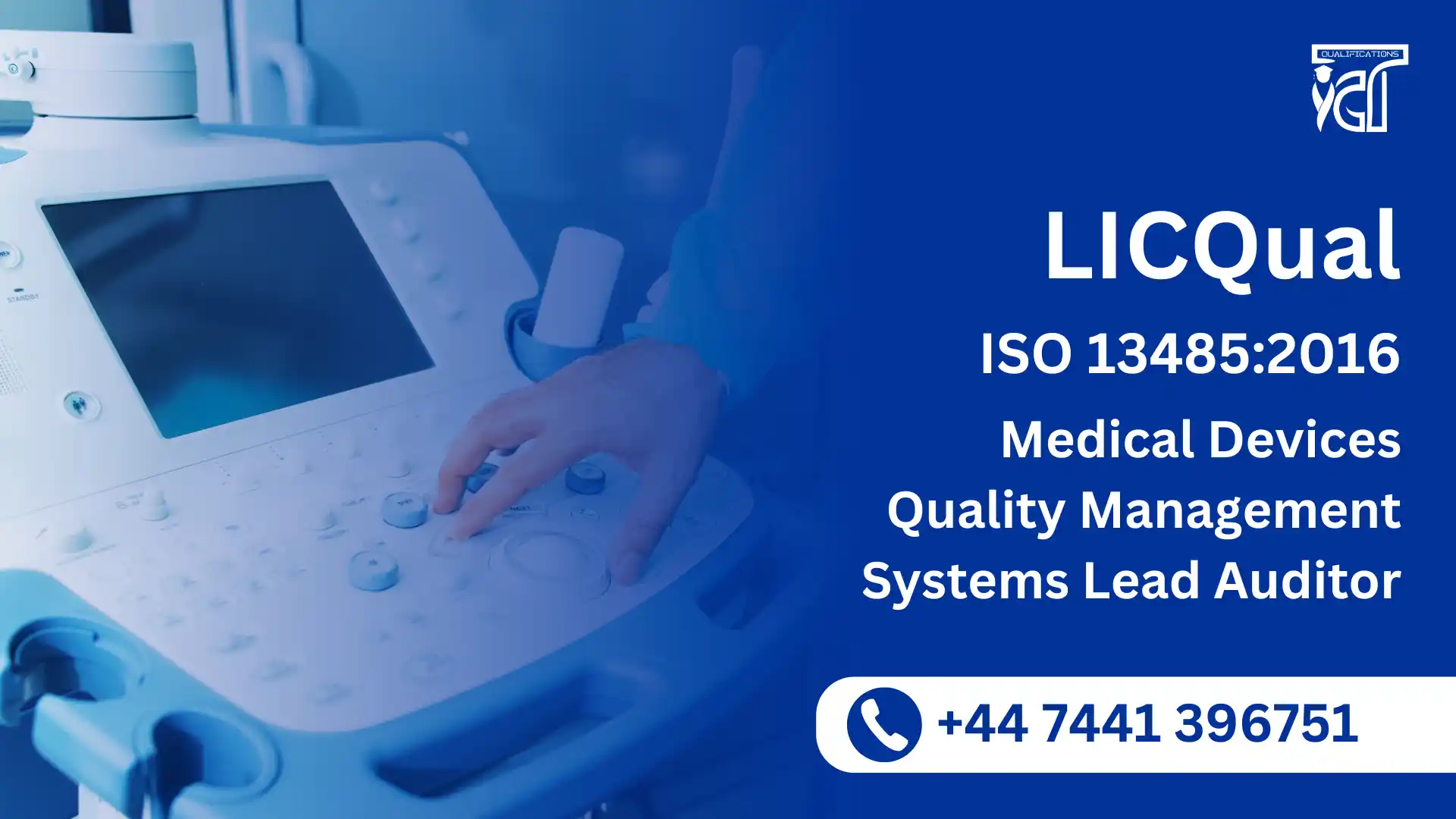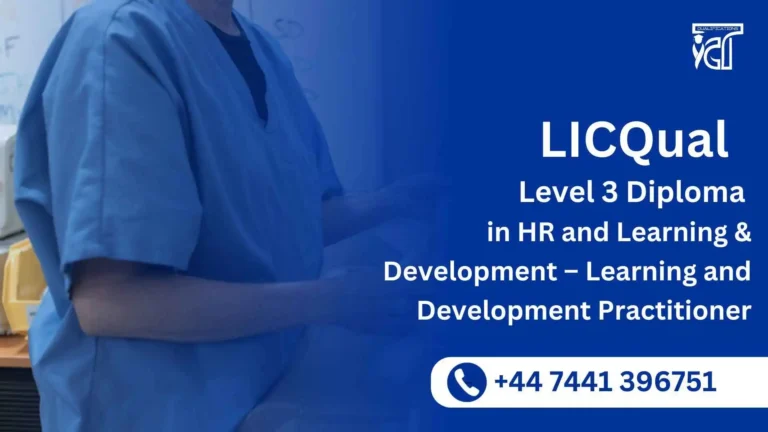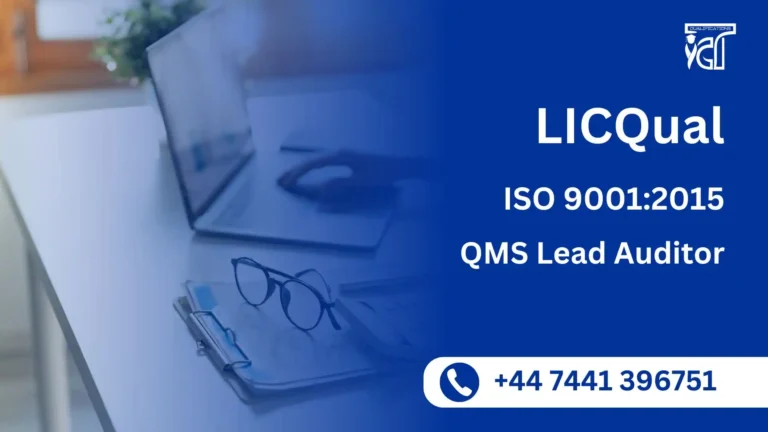The LICQual ISO 13485:2016 Medical Devices Quality Management Systems (MDQMS) Lead Auditor course is designed to provide professionals with the essential knowledge and skills required to conduct and lead audits of medical device quality management systems in accordance with the internationally recognized ISO 13485:2016 standard.
This standard specifies the requirements for a quality management system (QMS) where an organization needs to demonstrate its ability to provide medical devices and related services that consistently meet customer and applicable regulatory requirements.
Through this comprehensive training, learners will gain in-depth insights into the structure, principles, and clauses of ISO 13485:2016, along with practical expertise in planning, performing, reporting, and following up on audits. The course also emphasizes risk management, regulatory compliance, and the critical role of a robust QMS in ensuring the safety and effectiveness of medical devices throughout their lifecycle.
On successful completion of the LICQual ISO 13485:2016 Medical Devices Quality Management Systems Lead Auditor, participants will be well-prepared to lead both internal and external audits, assess conformity with ISO 13485:2016 requirements, and contribute to the continual improvement and compliance of medical device organizations.
This LICQual ISO 13485:2016 Medical Devices Quality Management Systems Lead Auditor is ideal for quality professionals, auditors, consultants, and regulatory affairs personnel involved in the medical device industry who aim to achieve excellence in quality management and regulatory compliance.
LICQual ISO 13485:2016 Medical Devices Quality Management Systems Lead Auditor
Following are the mandatory units of LICQual ISO 13485:2016 Medical Devices Quality Management Systems Lead Auditor:
| Unit Ref# | Unit Title | Credit | GLH |
| LICQ2200107-1 | Introduction to ISO 13485:2016 | 8 | 24 |
| LICQ2200107-2 | Quality Management Principles and Requirements | 8 | 24 |
| LICQ2200107-3 | Management Responsibility and Leadership | 6 | 18 |
| LICQ2200107-4 | Resource Management | 6 | 18 |
| LICQ2200107-5 | Product Realization and Design Control | 6 | 18 |
| LICQ2200107-6 | Measurement, Analysis, and Improvement | 6 | 18 |
GLH (Guided Learning Hours) and TQT (Total Qualification Time) are terms commonly used in vocational qualifications to help define the amount of time a learner is expected to spend on their studies.
1. GLH (Guided Learning Hours)
GLH refers to the number of hours a learner spends being directly taught, supervised, or supported during their course. This includes the time spent in activities such as:
- Classroom instruction
- Practical workshops
- One-on-one tutoring or mentoring sessions
- Online learning sessions with tutor support
In other words, GLH represents the time that learners are actively engaged with their instructors or learning activities.
2. TQT (Total Qualification Time)
TQT represents the total amount of time a learner is expected to invest in completing a qualification, including:
- GLH (Guided Learning Hours): Time spent on direct learning, as explained above.
- Self-Directed Learning: This includes time spent on independent study, research, assignment completion, preparation for exams, and any other work the learner does outside of direct teaching hours.
TQT is a broader measure that includes all the time required to achieve the qualification. It helps learners and employers understand the overall commitment required for the qualification.
Key Differences Between GLH and TQT:
- GLH focuses on direct learning with guidance or supervision.
- TQT includes GLH as well as independent study time and other learning-related activities.
Example:
If a qualification has a TQT of 600 hours and a GLH of 250 hours, it means the learner should spend 250 hours in direct learning (classroom, online, or tutor-led sessions) and 350 hours on independent study or research.
By the end of the LICQual ISO 13485:2016 Medical Devices Quality Management Systems Lead Auditor, learners will be able to:
Introduction to ISO 13485:2016
Upon completion of this unit, learners will be able to:
- Understand the structure, purpose, and key components of ISO 13485:2016 and its significance in the medical device industry.
- Identify the regulatory requirements that ISO 13485:2016 addresses and its role in ensuring the safety and effectiveness of medical devices.
- Recognize the benefits of implementing ISO 13485:2016 for medical device manufacturers and their stakeholders.
- Distinguish between ISO 13485:2016 and other quality management standards, such as ISO 9001.
Quality Management Principles and Requirements
By the end of this unit, learners will be able to:
- Explain the core principles of quality management and their application within the medical device industry.
- Identify the key requirements of ISO 13485:2016, including document control, corrective actions, and internal audits.
- Evaluate the effectiveness of quality management systems in improving the safety and quality of medical devices.
- Assess the implementation of risk management processes within the scope of ISO 13485:2016.
Management Responsibility and Leadership
Upon successful completion of this unit, learners will be able to:
- Understand the responsibilities of management in establishing, maintaining, and improving the quality management system (QMS) under ISO 13485:2016.
- Analyze the role of leadership in fostering a culture of quality, continuous improvement, and regulatory compliance.
- Assess the involvement of top management in defining policies, goals, and objectives aligned with the standard.
- Evaluate the effectiveness of management reviews and communication strategies within a medical device organization.
Resource Management
After completing this unit, learners will be able to:
- Identify the resources required for an effective QMS in a medical device manufacturing environment.
- Assess the adequacy of human resources, infrastructure, and work environment in supporting ISO 13485:2016 compliance.
- Evaluate the need for specialized training, qualification, and competence in ensuring the successful implementation of the QMS.
- Recommend resource improvements to optimize the performance of the quality management system.
Product Realization and Design Control
By the end of this unit, learners will be able to:
- Understand the processes involved in product realization and design control under ISO 13485:2016.
- Assess the design and development stages of medical devices, ensuring that they meet regulatory and quality standards.
- Evaluate product realization procedures, including planning, risk assessment, validation, and verification.
- Ensure that design control processes contribute to the continuous improvement of medical devices.
Measurement, Analysis, and Improvement
Upon completion of this unit, learners will be able to:
- Understand the importance of measurement, analysis, and continuous improvement in maintaining ISO 13485:2016 compliance.
- Identify key performance indicators (KPIs) and other metrics used to assess the effectiveness of the QMS.
- Evaluate data collection methods, analysis techniques, and reporting systems to monitor and improve product quality.
- Develop strategies for implementing corrective actions, conducting internal audits, and driving continuous improvement within a medical device organization.
Key Benefits of the LICQual ISO 13485:2016 Medical Devices Quality Management Systems Lead Auditor
✔ Comprehensive Understanding of ISO 13485:2016
Gain in-depth knowledge of the ISO 13485:2016 standard, its structure, clauses, and requirements for the implementation of effective medical devices quality management systems (MDQMS).
✔ Enhanced Auditing Competence
Develop the skills to plan, conduct, report, and follow up on audits to assess conformity with ISO 13485:2016 requirements, both as an internal or external lead auditor.
✔ Improved Risk Management Skills
Learn to apply risk-based thinking during audits, helping organizations identify and address potential risks related to product quality, safety, and regulatory compliance in the medical device industry.
✔ Leadership in Audit Management
Acquire the ability to lead audit teams effectively, manage complex auditing situations, and communicate findings clearly to top management and stakeholders.
✔ Contribution to Product Quality and Patient Safety
Support organizations in ensuring their medical devices meet international safety, quality, and performance standards, thereby enhancing patient safety and customer satisfaction.
✔ Awareness of Regulatory Requirements
Understand the importance of compliance with regulatory authorities, such as the FDA, EU MDR, and other global bodies, ensuring products meet both customer and legal requirements.
✔ Enhanced Career Opportunities
Earn an internationally recognized certification that opens doors to auditing, consulting, quality management, and regulatory affairs roles within the global medical devices industry.
✔ Support for Organizational Certification and Market Access
Help organizations achieve and maintain ISO 13485 certification, enhancing market access, competitive advantage, and credibility in domestic and international markets.
✔ Focus on Continual Improvement
Enable organizations to identify areas for process optimization and continual improvement within their MDQMS, contributing to better efficiency, reduced non-conformities, and operational excellence.
Ideal Learner: LICQual ISO 50001:2018 Energy Management System Lead Auditor
This course is ideally suited for:
Quality Managers and Quality Assurance Professionals
Individuals responsible for implementing, maintaining, and improving Quality Management Systems (QMS) in medical device manufacturing or service organizations.
Internal and External Auditors
Professionals conducting or intending to conduct first-party (internal) or second/third-party (supplier or certification body) audits against ISO 13485:2016 requirements.
Regulatory Affairs Specialists
Personnel involved in ensuring products and processes comply with international medical device regulations, including FDA, EU MDR, and other global standards.
Medical Device Designers and Manufacturers
Engineers, designers, and production managers involved in developing and producing medical devices who wish to understand quality system auditing requirements.
Consultants and Quality System Advisors
Consultants advising clients on ISO 13485:2016 implementation and audit readiness in the medical devices sector.
Process Owners and Operations Managers
Leaders overseeing processes that impact product quality, safety, and regulatory compliance within medical device companies.
Aspiring Lead Auditors
Individuals seeking to pursue a professional career as certified lead auditors for ISO 13485:2016, either within their organization or as part of a certification body or consultancy.
Anyone Involved in the Medical Devices Supply Chain
Suppliers, distributors, and service providers aiming to meet customer and regulatory expectations regarding quality management in the medical devices industry.
Entry Requirements
Register Now
Qualification Process
Qualification Process for the LICQual ISO 13485:2016 Medical Devices Quality Management Systems Lead Auditor
- Self-Assessment:
Begin by evaluating your eligibility to ensure you meet the qualification requirements, including work experience, knowledge, and language proficiency. - Registration:
Complete your registration by submitting the required documents, including a scanned copy of a valid ID, and paying the registration fee. - Induction:
An assessor will conduct an induction to confirm your eligibility for the course and explain the evidence requirements. If you do not meet the criteria, your registration will be canceled, and the fee will be refunded. - Assignmnets & Evidence Submission:
Provide all assignmnets and the necessary evidence based on the assessment criteria outlined in the course. If you are unsure of the required evidence, consult with the assessor for guidance on the type and nature of evidence needed. - Feedback and Revision:
The assessor will review your submitted evidence and provide feedback. Evidence that meets the criteria will be marked as “Criteria Met,” while any gaps will be identified. You will be asked to revise and resubmit if needed. - Competence Evidence:
Submit final evidence demonstrating that all learning outcomes have been met. This evidence will be marked as “Criteria Met” by the assessor once it is satisfactory. - Internal Quality Assurance (IQA):
The Internal Quality Assurance Verifier (IQA) will review your evidence to ensure consistency, quality, and compliance with standards. - External Verification:
The IQA will submit your portfolio to LICQual External Quality Assurance Verifiers (EQA) for final confirmation. The EQA may contact you directly to verify the authenticity of your evidence. - Certification:
Upon successful completion of all checks, LICQual will issue your official certificate, confirming that you have attained the LICQual ISO 13485:2016 Medical Devices Quality Management Systems Lead Auditor.







